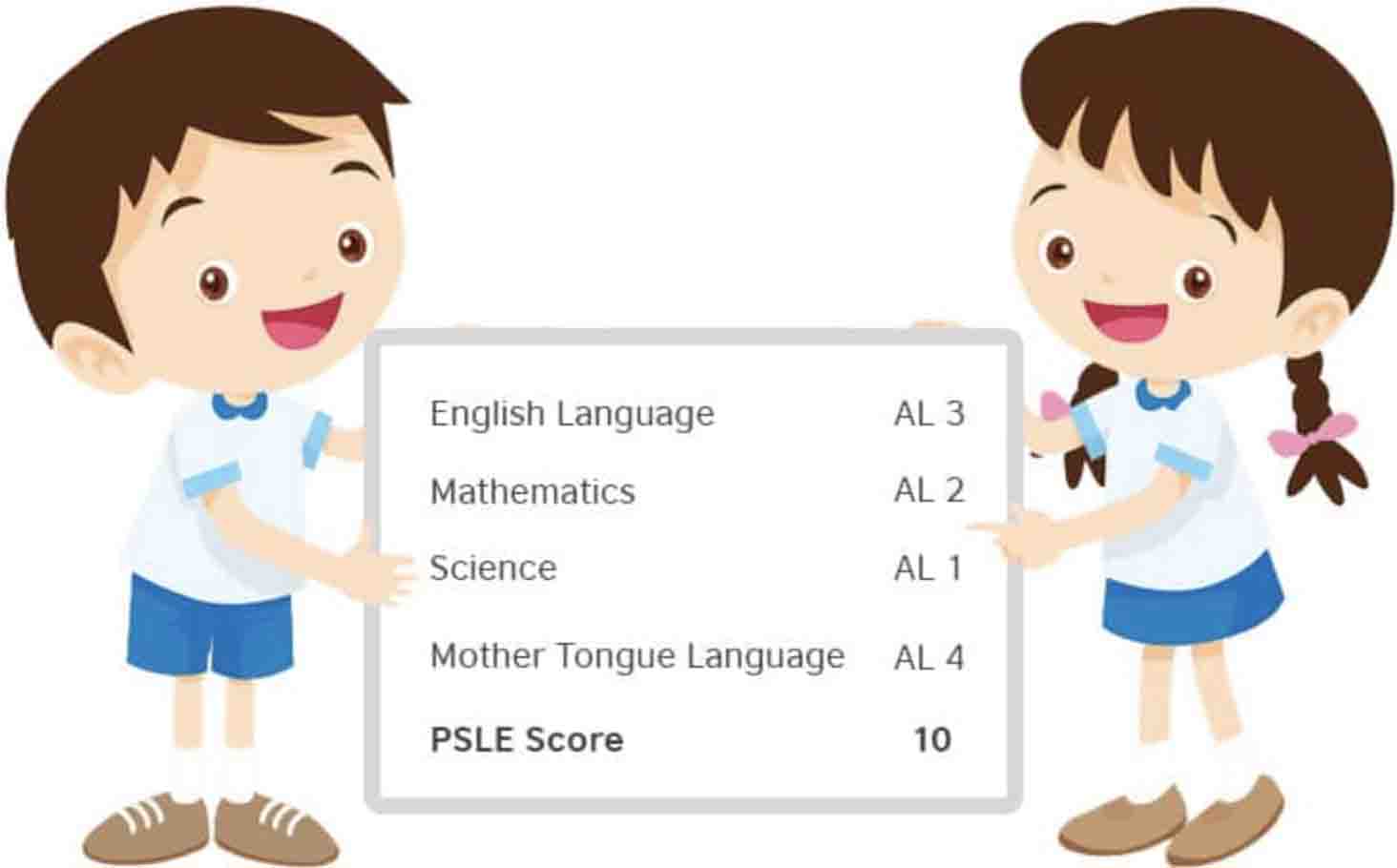The New PSLE Scoring System
All You Need To Know
AL |
Raw Mark Range |
|---|---|
|
1 |
≥ 90 |
|
2 |
85 - 89 |
|
3 |
80 - 84 |
|
4 |
75 - 79 |
|
5 |
65 - 74 |
|
6 |
45 - 64 |
|
7 |
20 - 44 |
|
8 |
< 20 |

The final PSLE Score will be the sum of the four subject scores, which ranges from 4 to 32, with 4 being the best possible total score.
Under this new system, there will only be 29 possible PSLE scores, students’ examination results are less finely differentiated. The results will now reflect how well students have done relative to learning objectives of the curriculum, rather than compared to their peers, reducing competition and recognising the students’ achievements. With more students having the same PSLE score and more schools with the same cut-off point, students will have a wider range of schools to choose from, depending on their strengths and interests. This will also encourage parents and students to look beyond the cut-off points to the unique programmes and CCAs offered by the different secondary schools.
Next up, let us address some concerns. For one, you would have realised that the middle and lower AL bands are more uneven and wider than the upper bands. According to MOE, “the upper AL bands are designed to avoid too many students achieving the same PSLE Score and requiring more tie-breaking to determine secondary school postings. At the middle to lower ALs, students’ scores are more widely distributed, hence finer differentiation is less meaningful.” This is actually meant to benefit the average students by providing a wider range of secondary schools to choose from at their PSLE scores. In addition, there are no changes to the assessment criteria and format of the examination, so parents can rest assured that there will be no disadvantages to the students under this new system.


With regards to balloting, ultimately, academic merit remains to be the most crucial in determining the students’ school posting. Based on MOE’s simulations, about 9 in 10 students will not need to undergo balloting. Tie-breakers will only be used if there are two or more students with the same PSLE Score vying for the last available place in a school, which are:
- Citizenship (Singapore citizens will be given priority.)
- Choice order (The student who ranked the school higher in the list will be more likely to get in.)
- Computerised balloting
In the respective order.
The view that more students will need to undergo balloting under this new scoring system is absolutely incorrect, please rest assured that students will not be entering their chosen school by chance, but instead, still through academic merits.

Read Our Other Articles to Boost Your Grades
- 9 Tips to Studying in JC
- 7 Methods that will boost your H2 Chemistry Grade
- 4 Things To Do if you just Failed your JC Exams
- How To Excel in A-Level General Paper? – Ex JC lecturer’s secret advices
- 10 Highly Effective Studying Techniques for JC
- How to do well for H2 Physics
- Scoring A1 For O-Level English in Sophia Education: Top English Tuition’s Secret Advices
- Sophia Education: Top Notch JC Chemistry Tuition Centre in Singapore
- Mental Health Amongst Students in Singapore: Why & How to Solve It
- The Covid-19 Pandemic Effects on Singaporean Students



